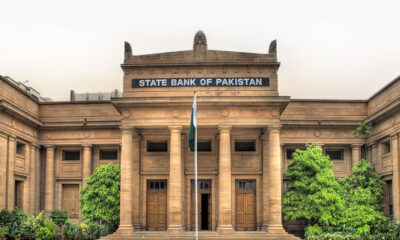- Pakistan’s case not included in board meeting agenda for Dec 1-15.
- Ongoing SBA programme is going to expire on April 14, 2024.
- Pakistan, IMF reached agreement on first review last month.
The International Monetary Fund’s Executive Board will take up Pakistan’s first review on January 11 next year for approval that will unlock $700 million under the standby arrangement (SBA), Bloomberg quoted the lender’s spokesperson as saying on Friday.
Last month, Pakistan reached a staff-level agreement with the IMF under the $3 billion SBA and is awaiting the board’s approval to receive a second tranche.
Earlier this week, The News had reported that Pakistan’s first review for approval was not included in the IMF’s Executive Board meeting agenda for the 1-15 December schedule
The publication reported that the IMF did not firm up its exact schedule because the Fund’s team was busy securing re-confirmation from all multilateral and bilateral creditors to meet the financing requirements of $24.9 billion for the current fiscal year.
This delay surfaced in discussions among the policymakers that the IMF might kick-start parleys on the second review probably after the general elections and takeover by the elected government.
The IMF programme was initially scheduled to kick-start parleys for a second review from Feb 3, 2024, but if the elections were scheduled to be held on February 8, 2024, then the possibility of holding talks might be done in the last week of Feb or early March 2024.
The ongoing SBA programme is going to expire on April 14, 2024.
A day earlier, IMF Executive Director Bahador Bijani noted an overall improvement in the economic situation, saying, the “Pakistani authorities have delivered”.
He made these remarks at an event hosted by Pakistan’s ambassador to the US in honour of friends of Pakistan from International Financial Institutions including IMF, International Finance Corporation (IFC), World Bank (WB), and Multilateral Investment Guarantee Agency (MIGA), at Pakistan House in Washington.
“I think the future for Pakistan is very bright. Pakistan is not just any country. It’s one of the most important countries in the region and in the world. Pakistanis deserve much more,” the IMF executive director was quoted as saying in an official statement.
Nathan Porter, IMF Mission Chief to Pakistan, also expressed satisfaction over the recently concluded staff-level agreement. He said that the actions and policies of the current government reflected its commitment to steer the country towards stabilisation.
Pakistan is reeling from Asia’s fastest inflation, has about $1 billion in dollar-denominated debt due next year and is scheduled to hold elections scheduled in February.
Interim Finance Minister Shamshad Akhtar said after the staff-level deal in November that the country may seek an additional loan from the IMF, describing the economy as “still fragile.”

 Business24 hours ago
Business24 hours ago
 Latest News1 day ago
Latest News1 day ago
 Latest News24 hours ago
Latest News24 hours ago
 Latest News1 day ago
Latest News1 day ago
 Latest News1 day ago
Latest News1 day ago
 Latest News1 day ago
Latest News1 day ago
 Latest News1 day ago
Latest News1 day ago
 Latest News24 hours ago
Latest News24 hours ago























